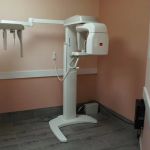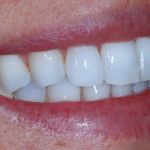- 1. Understanding Yellow Teeth Caused by Medication
- 2. Common Medications That Cause Yellow Teeth
- 3. Why Medications Can Discolor Your Teeth
- 4. How to Prevent Yellow Teeth from Medication
- 5. Ways to Fix Yellow Teeth Caused by Medication
- 6. Professional Treatments for Yellow Teeth
- 7. Home Remedies for Yellow Teeth
- 8. When to See a Dentist
1. Understanding Yellow Teeth Caused by Medication
Medication-related tooth discoloration is a common issue that many people experience without even realizing the cause. If you've noticed your teeth becoming yellow or discolored after starting a new medication, you're not alone. Certain medications can stain the enamel of your teeth, leading to a yellowish hue that can affect your smile. The good news is that there are ways to fix this problem and regain your bright smile.
To fully understand how to fix yellow teeth caused by medication, it's important to recognize why certain medications lead to tooth discoloration in the first place. Some medications affect the enamel's ability to remain white, while others directly cause discoloration due to their chemical composition. If you're dealing with yellow teeth caused by medication, the right treatment options can help reverse or minimize the stains, bringing back your natural whiteness.
2. Common Medications That Cause Yellow Teeth
Several types of medications are known to cause yellowing of the teeth. While not everyone will experience this side effect, it’s important to be aware of the medications that are most likely to cause staining:
- Antibiotics: Medications such as tetracycline and doxycycline, which are commonly used to treat bacterial infections, are known to cause yellow or gray staining of the teeth, particularly in children under the age of 8.
- Antihistamines: Some antihistamines, like diphenhydramine (Benadryl), can dry out the mouth, leading to reduced saliva flow. This creates an environment that can promote plaque buildup, which can stain your teeth over time.
- Blood Pressure Medications: Certain blood pressure medications, such as calcium channel blockers, can cause gum overgrowth and plaque buildup, which can lead to yellowing of the teeth.
- Antidepressants: Some antidepressant medications, such as selective serotonin reuptake inhibitors (SSRIs), can cause dry mouth, which increases the risk of tooth discoloration.
- Chemo Drugs: Chemotherapy medications can have several side effects, including the yellowing of teeth. This is often due to the impact of chemotherapy on the body's natural ability to maintain healthy enamel.
If you're taking any of these medications and notice your teeth turning yellow, it’s important to address the issue as soon as possible to prevent further staining.
3. Why Medications Can Discolor Your Teeth
The discoloration of your teeth from medication is caused by several factors. Medications can have different effects on the enamel of your teeth, the outermost layer that protects your teeth from damage. Some medications interact with the minerals in your enamel, causing it to weaken or become porous. This makes it easier for staining agents, such as food, drinks, and tobacco, to penetrate and discolor the teeth.
In other cases, medications can decrease the amount of saliva in your mouth, leading to dry mouth. Saliva plays a key role in neutralizing acids in the mouth, washing away food particles, and preventing plaque buildup. Without sufficient saliva, plaque can accumulate more easily on your teeth, leading to stains and discoloration over time.
Additionally, some medications may directly cause discoloration as a side effect. Certain antibiotics, for example, can cause yellow, brown, or gray staining of the teeth, especially if taken during the development of a child’s teeth. These stains are often more difficult to remove, requiring professional dental treatments.
4. How to Prevent Yellow Teeth from Medication
While it’s not always possible to prevent yellow teeth caused by medication, there are steps you can take to minimize the risk:
- Brush Regularly: Brush your teeth at least twice a day using fluoride toothpaste to help remove plaque buildup that can lead to staining.
- Drink Water: Drinking water regularly can help keep your mouth hydrated and wash away food particles, reducing plaque buildup and helping to prevent staining.
- Use Mouthwash: An antibacterial mouthwash can help reduce plaque and bacteria in your mouth, preventing the buildup of staining substances.
- Choose a Different Medication: If possible, talk to your doctor about switching to a medication that doesn’t cause tooth discoloration.
Preventing yellow teeth from medication requires consistent oral hygiene practices and, if possible, working with your healthcare provider to explore alternatives that won’t stain your teeth.
5. Ways to Fix Yellow Teeth Caused by Medication
If you're already dealing with yellow teeth caused by medication, there are several ways to address the issue:
- Whitening Toothpaste: Whitening toothpaste can help to gradually reduce surface stains on your teeth. While it might not completely remove deep stains, it can help brighten your smile over time.
- Whitening Strips: Over-the-counter whitening strips can provide more noticeable results in a shorter period of time. These strips are designed to remove stains and brighten teeth by applying a bleaching agent to the surface of your teeth.
- Professional Teeth Whitening: For more severe cases of yellowing, professional teeth whitening treatments are a great option. A dentist can apply a stronger bleaching agent to your teeth to remove deeper stains that at-home treatments can’t reach.
Depending on the severity of the staining, you may need to consult a dentist to determine the most effective course of action. Professional treatments can provide more dramatic and lasting results compared to over-the-counter products.
6. Professional Treatments for Yellow Teeth
In cases where over-the-counter whitening products don’t work, professional dental treatments can be a more effective solution. Dentists offer treatments like:
- In-Office Bleaching: This is a faster whitening option that uses stronger bleaching agents to remove stains from your teeth. The results are often visible immediately after the treatment.
- Veneers: If your teeth are severely discolored, dental veneers can be applied. Veneers are thin, custom-made shells that cover the front surface of your teeth, improving both color and appearance.
- Dental Bonding: Dental bonding involves applying a tooth-colored resin to the surface of your teeth to cover stains and improve their appearance.
Professional treatments tend to be more expensive than at-home solutions, but they often deliver quicker and more effective results for yellow teeth caused by medication.
7. Home Remedies for Yellow Teeth
If you're looking for more affordable and natural ways to fix yellow teeth, there are several home remedies you can try. While they may not be as effective as professional treatments, they can help reduce the appearance of staining over time:
- Baking Soda and Hydrogen Peroxide: A paste made from baking soda and hydrogen peroxide can help remove surface stains and whiten teeth. Use this paste sparingly, as it can be abrasive if overused.
- Activated Charcoal: Some people use activated charcoal to remove surface stains from their teeth. However, it’s important to use it cautiously to avoid damaging your enamel.
- Apple Cider Vinegar: Apple cider vinegar is a natural cleaning agent that may help whiten your teeth. However, it should be diluted with water to avoid damaging the enamel.
While these remedies can help, they should be used in moderation to prevent any damage to your teeth's enamel.
8. When to See a Dentist
If you've tried over-the-counter whitening products and home remedies without success, it may be time to see a dentist. A dental professional can assess the extent of the staining and recommend the best course of action for your individual needs. Additionally, if the discoloration is caused by a medical condition or medication, your dentist can work with you and your doctor to find a solution.
Ultimately, maintaining good oral hygiene practices and working with a dental professional will help you address yellow teeth caused by medication and restore your smile.







 Downey Family Cosmetic Dentistry4.0 (120 review)
Downey Family Cosmetic Dentistry4.0 (120 review) JP Orthodontics: Patel Jay R DDS3.0 (4 review)
JP Orthodontics: Patel Jay R DDS3.0 (4 review) Garden State Smiles of Matawan4.0 (502 review)
Garden State Smiles of Matawan4.0 (502 review) Chroma Dentistry Practice of Dr. Sylvia Carlos5.0 (28 review)
Chroma Dentistry Practice of Dr. Sylvia Carlos5.0 (28 review) Jody B Vance, DDS, MS, PC4.0 (119 review)
Jody B Vance, DDS, MS, PC4.0 (119 review) Maryann M. Ghali, DMD, PA4.0 (157 review)
Maryann M. Ghali, DMD, PA4.0 (157 review) The Importance of Oral Health Education During Pregnancy for a Healthy Pregnancy
The Importance of Oral Health Education During Pregnancy for a Healthy Pregnancy Best Tips for Brushing Your Teeth Properly for Healthy Gums: Essential Techniques for Oral Health
Best Tips for Brushing Your Teeth Properly for Healthy Gums: Essential Techniques for Oral Health Why Skipping Dental Checkups Can Lead to Bigger Oral Health Problems
Why Skipping Dental Checkups Can Lead to Bigger Oral Health Problems Advantages of Porcelain Dental Restorations
Advantages of Porcelain Dental Restorations How Can Diabetes Cause Tooth and Gum Problems? Preventing and Managing Oral Health Issues
How Can Diabetes Cause Tooth and Gum Problems? Preventing and Managing Oral Health Issues Healthy Habits for Promoting Good Oral Health and Hygiene: Tips for a Healthy Smile
Healthy Habits for Promoting Good Oral Health and Hygiene: Tips for a Healthy Smile